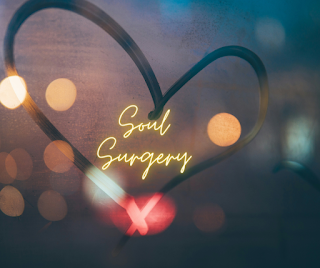Time Doesn’t Heal—But God Does
We all want to be the best parents we can be. We want to nurture, guide, and love our children in a way that strengthens them, builds their confidence, and gives them the security we may not have always had ourselves. We long to provide them with a foundation built on trust, patience, and unwavering love.
But no matter how much we try, if we carry unhealed wounds, those wounds will inevitably spill over into the way we parent.
Unresolved hurt doesn't stay buried—it seeps into our words, reactions, and the spaces we hold for our children. It's in how we overreact to mistakes—not because of the mess, but because deep down, we've spent a lifetime fearing failure. The fears keep us hovering, limiting their freedom, not just for safety, but because we never knew what it felt like to truly be free ourselves. It's in the doubts that whisper, "Am I enough?"
It's the whispers when a mom never meant to yell so quickly. But the anger came faster than she could stop, sharper than expected. It wasn't really about the spilled juice on the floor. It was about the disappointments, fears, and wounds she hadn't named, healed, or faced.
Her little boy looked up at her with wide, tearful eyes—and she saw it. Her brokenness wasn't staying inside. It was leaking out onto him.
And in that moment, guilt rushed in. Not just for this outburst but for all the ones before. For the times, frustration drowned out compassion. For a moment, she reacted instead of responding. For every second she wished she could take back.
But here's the truth: shame won't heal a heart. And regret won't rewrite the past. Healing will. Intention will. Choosing something different will.
We've all heard the phrase, "Time heals all wounds." But time alone doesn't heal trauma. Time can make pain easier to ignore, but won't erase what lingers beneath the surface.
Without true healing, those wounds remain—shaping our responses, influencing our parenting, and dictating the emotional environment we create for our children.
Healing isn't passive. It's intentional.
It requires us to pause, reflect, and confront the burdens we've carried for too long. It asks us to acknowledge how those burdens affect our children—the tone in our voice when frustration rises, the hesitation in our hearts when they need us most, and the fear that keeps us from fully embracing their mistakes as opportunities for growth.
But in this journey, remember that self-care is not a luxury but a necessity.
Healing starts with acknowledging the wounds, seeking support, and committing to the process. Whether that means therapy, prayer, or honest conversations with yourself, these steps can be the beginning of something new—a journey that values your well-being so you can stop carrying the weight alone.
If we don't repair, we repeat.
We pass down the fears we never faced.
We repeat the cycles of hurt we swore we'd never allow.
We mirror the parenting styles shaped by survival instead of grace.
But we don't have to. Healing isn't just possible—it's promised.
Healing is a transformative journey that leads us to a place of wholeness and strength we never thought possible. It's an act of courage that doesn't just free us—it frees the generations after us. It's a beacon of hope, promising a future free from the shackles of past wounds.
Healing allows us to shift from reacting to responding. It teaches us patience, self-awareness, and wisdom that breaks generational patterns.
Most importantly, healing invites God into our broken places because only through Him does authentic restoration happen. His presence in our healing journey gives us the strength, guidance, and comfort to overcome our past and build a better future for our children.
When we invite God into our pain, He does what time alone cannot.
He softens our hearts.
He rewrites our inner dialogue.
He replaces our burdens with His peace.
The more we allow Him to heal us, the more we parent from security instead of scarcity, love instead of fear.
Our children don't need perfect parents.
They need parents who are healing.
Parents who show them grace, patience, and the truth that brokenness is not the end of the story.
Healing doesn't mean we never make mistakes. It means we recognize them, learn from them, and choose to grow. It's a journey, not a destination; taking it one step at a time is okay.
The weight of unhealed wounds can feel impossible to carry, but healing is not a solitary journey.
When we invite God into our pain, He restores, renews, and leads us into a future shaped by His grace instead of our past hurts.
Healing isn't just for us—it's for the generations that follow.
When we surrender our burdens, we break cycles.
When we choose to heal, we give our children something new—a foundation built on love instead of fear, trust instead of hesitation, and wisdom instead of wounds.
"He heals the brokenhearted and binds up their wounds." – Psalm 147:3
You are not too far gone. It is not too late. Healing can start with you—and when it does, the generations after you will experience something new, something whole, something redeemed.
Heal—not just for yourself, but for the children who look up to you.
They deserve a whole version of you, not fractured by past wounds.
When you commit to healing, you ensure they inherit love, strength, and grace—instead of pain, fear, and survival.
By forging a path toward your own wholeness, you grant them the opportunity to grow in a nurturing environment, free from the burdens you once carried.
Your journey matters.
And it lights the way for their future.
.jpg)

.png)
Comments
Post a Comment